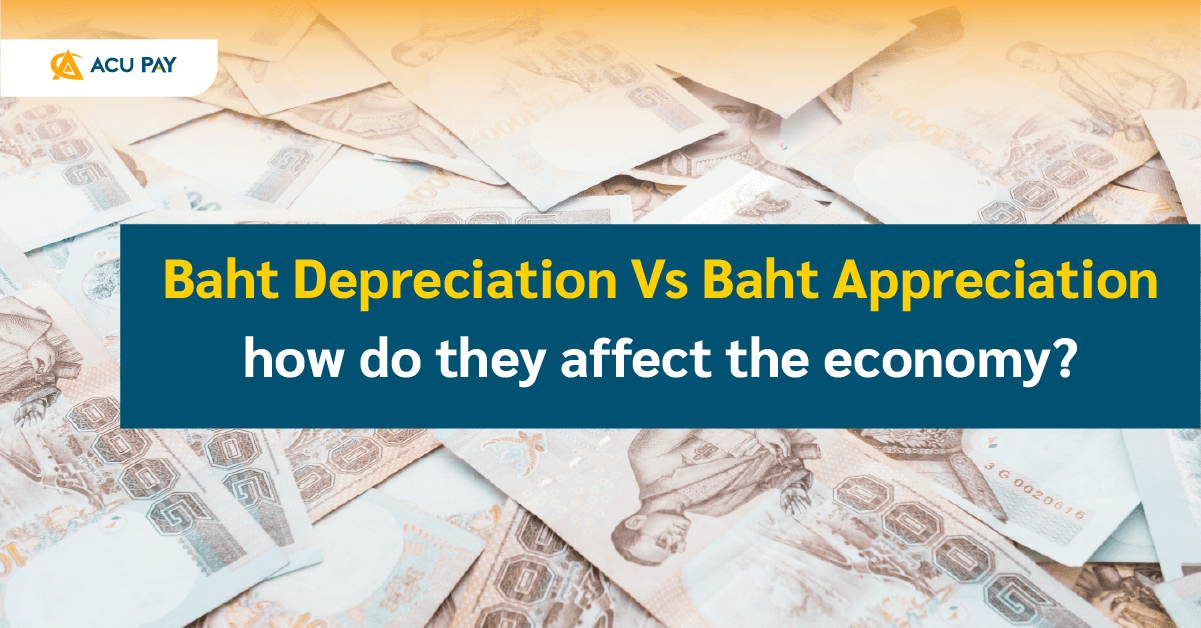

Did you know that apart from effects on our money, the baht depreciation and baht appreciation also affect the economy outside the country whether importation – exportation of goods or services? This time ACU PAY will tell you about what baht depreciation and appreciation are, what are the causes of them and what effect do they have on.
This is a change in the exchange rate that causes the currency of that country to be exchanged less foreign currencies, or the currency of that country seems to reduce compared to foreign currencies. In the money market, it is commonly compared with dollar currency.
For example, we used to exchange 35 baht for 1 dollar but now have to use 40 baht in exchange for 1 dollar.
1. Interest rate and inflation rate
The nature of money will flow from low return to high return. If a country adjusts its interest rate and yields higher interest than other countries, the money will flow into that country. The money value in the country that the money flows out will be more depreciated compared to the country that has money flow in.
2. Monetary policy from the central bank
The central bank of Thailand can determine the amount of Baht in the financial system through various measures.
If the central bank deems that inflation is too high, it will require commercial banks to maintain more liquid assets under the law. As a result, the amount of money that commercial banks can lend has decreased, resulting in a decrease in the Baht’s supply which is like reducing the Baht’s demand or quantity and makes the Baht likely to appreciate.
If the central bank deems that deflation is too high, it will require commercial banks to lower their liquidity asset retention rates, thus increasing the money supply in the system which is like increasing demand for the baht, which will likely cause the baht to depreciate.
3. The policy of buying and selling Baht through financial markets
If economic conditions are not suitable for adjusting the ratio of liquid assets, central banks will trade currencies through financial markets to control their currency such as;
The Bank of Thailand buys the Baht and sells the dollar to strengthen the baht against the dollar or The Bank of Thailand buys the dollar and sells the Baht to weaken the baht against the dollar.